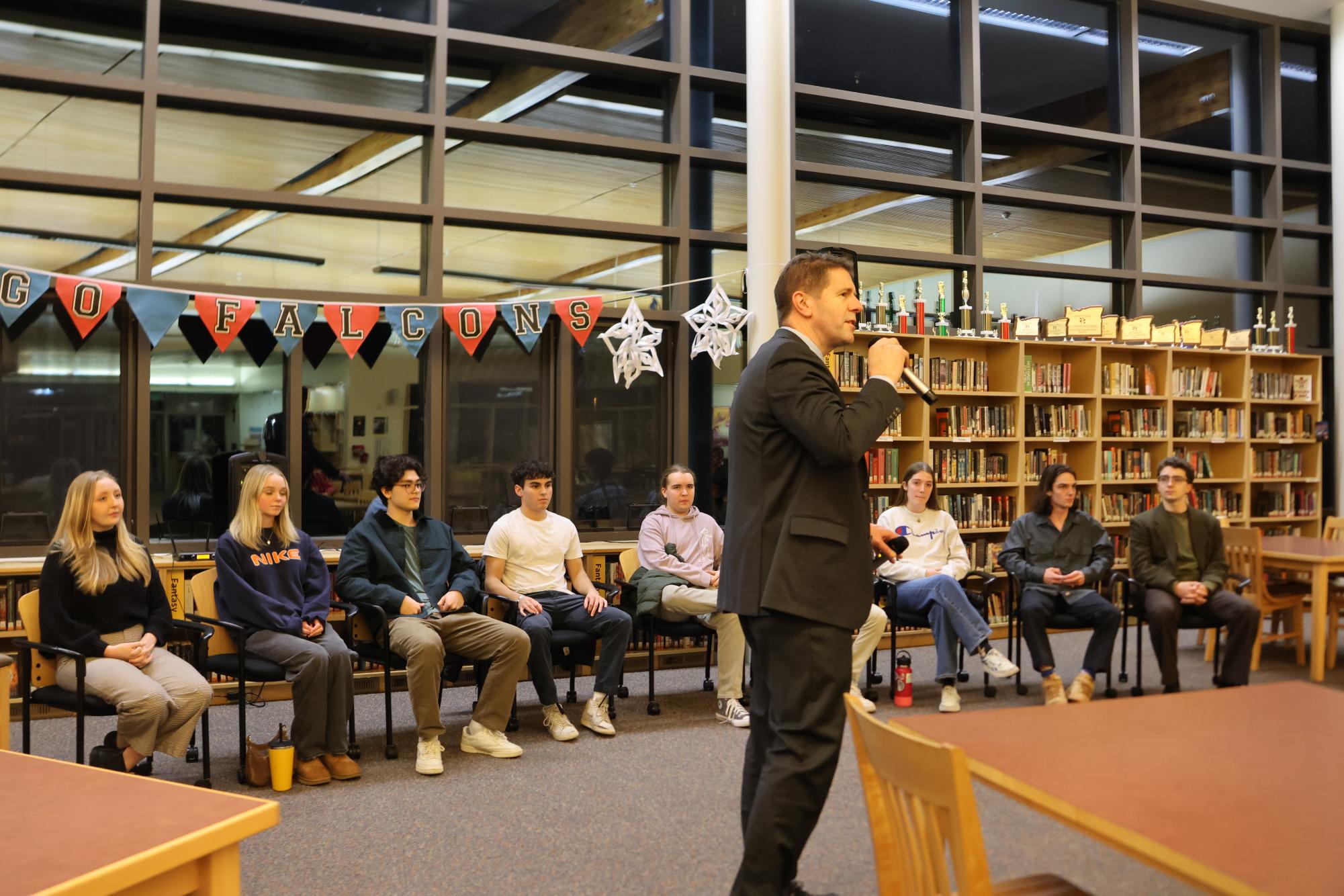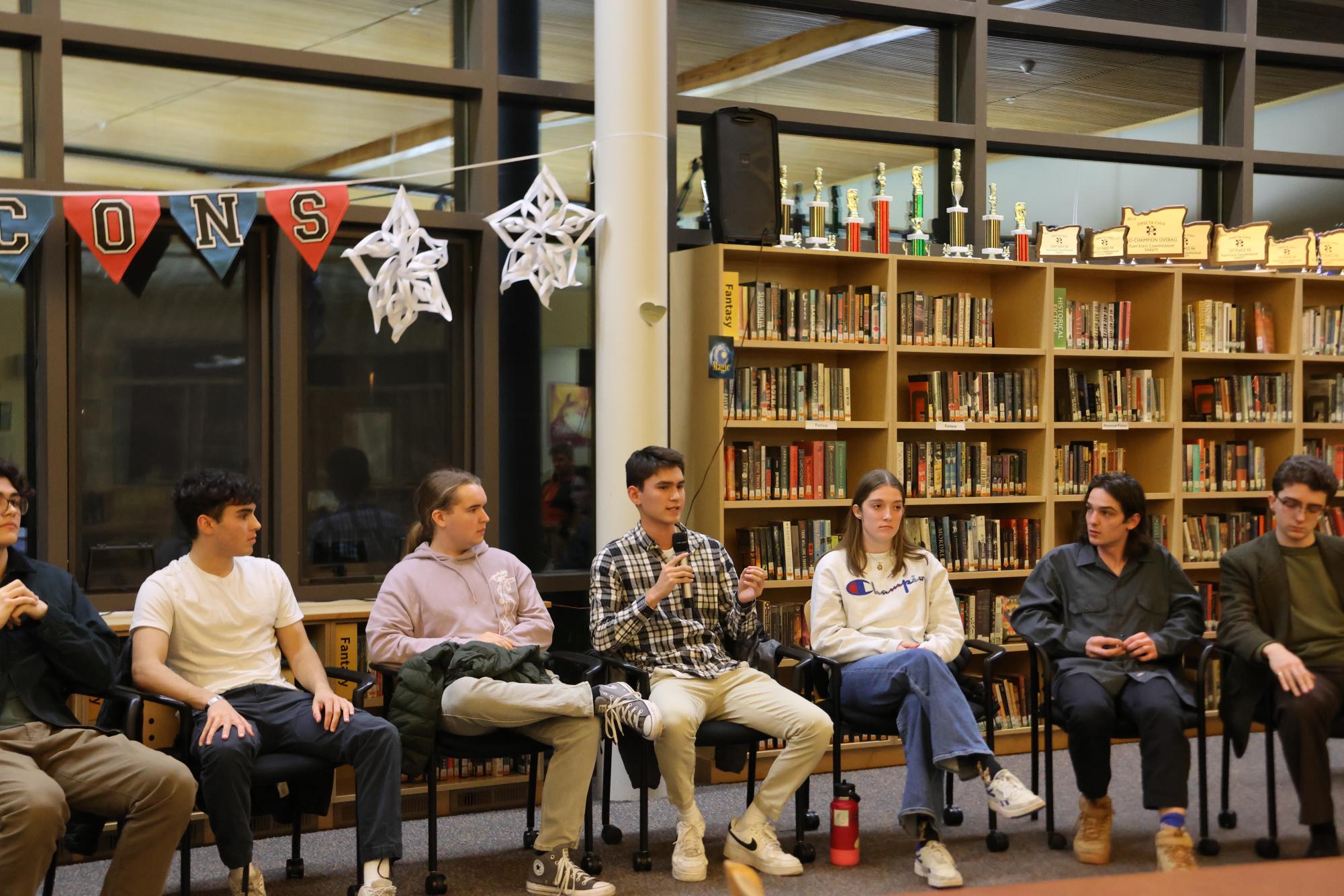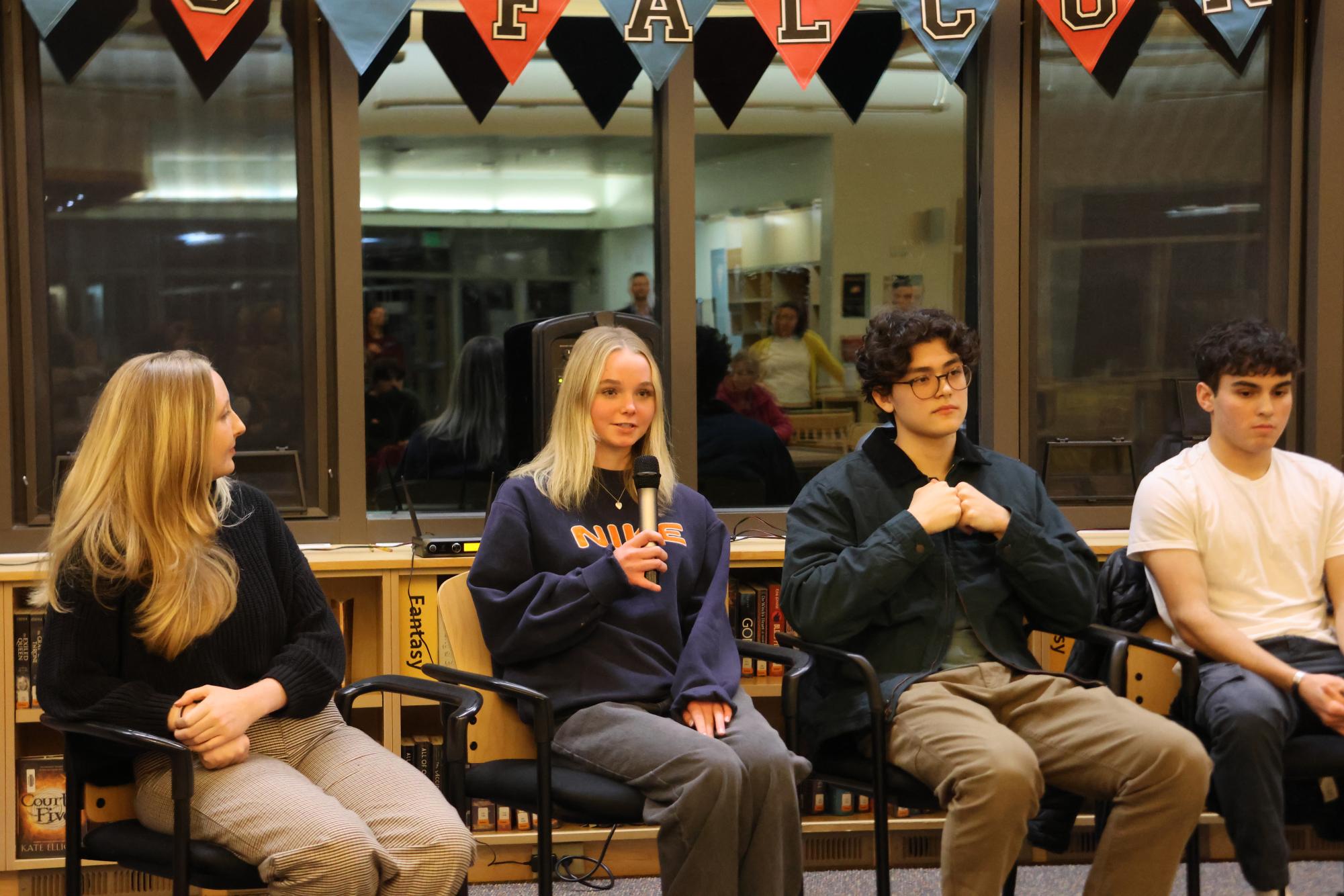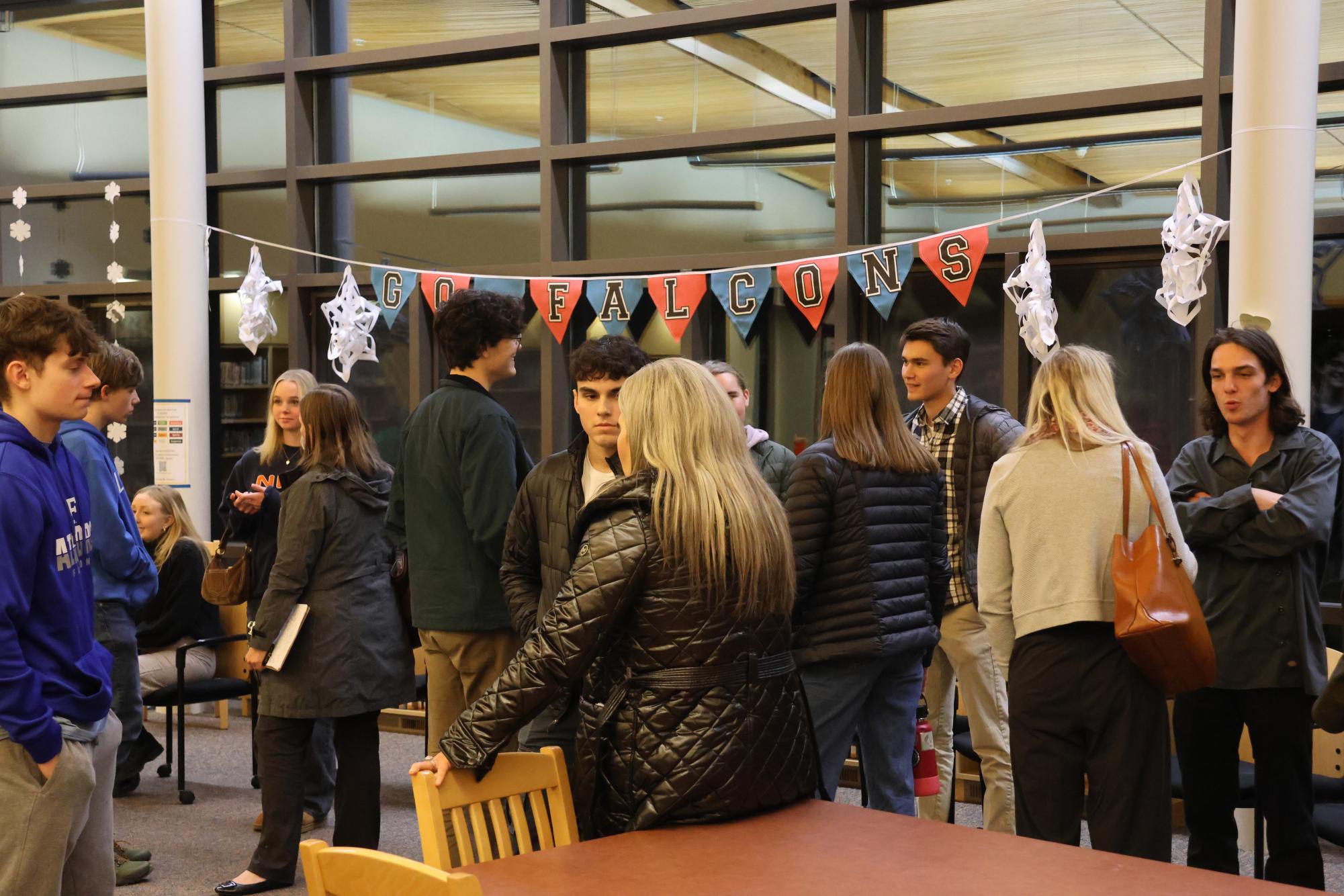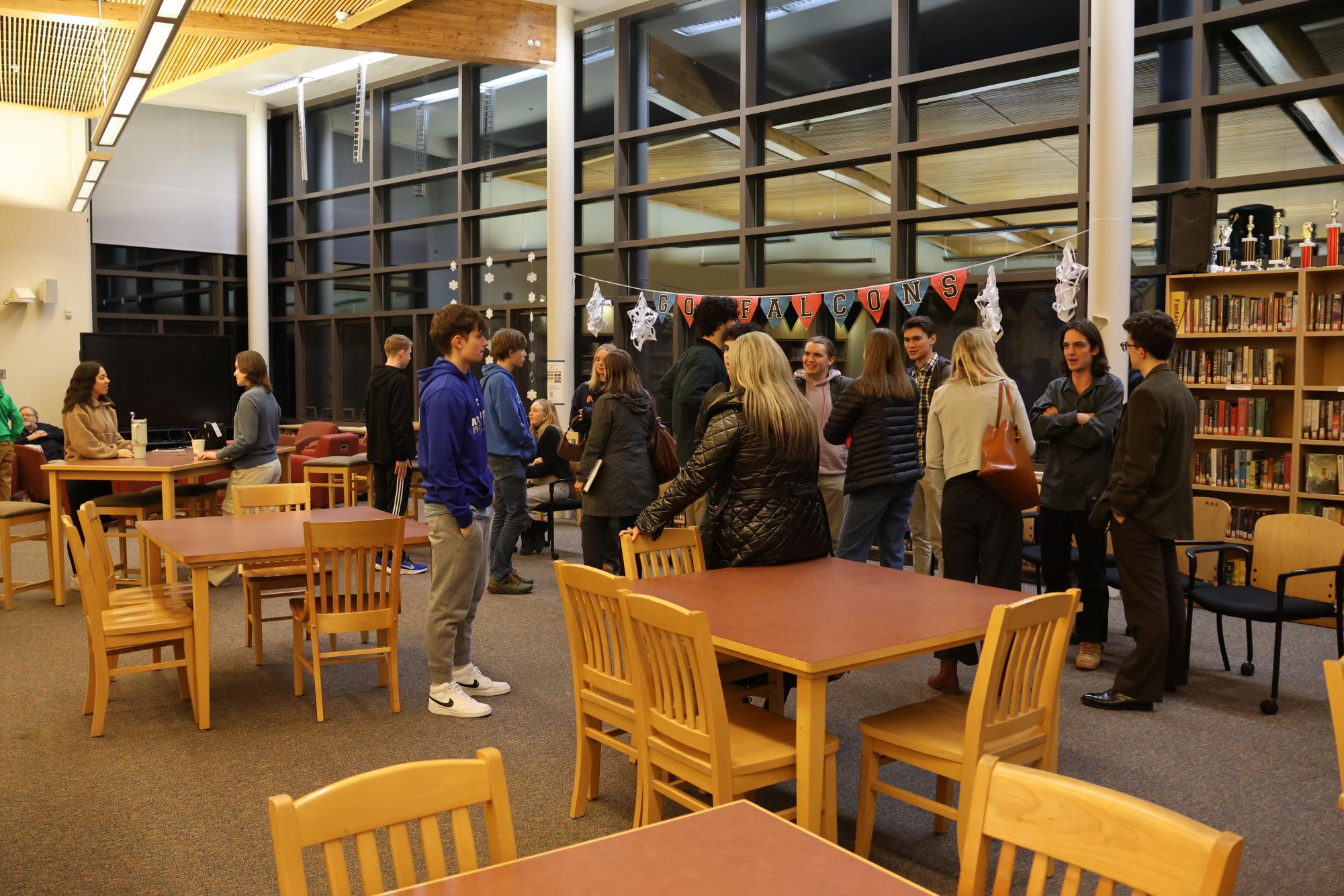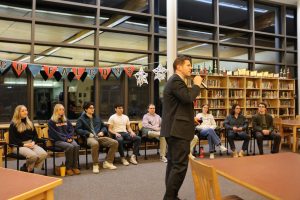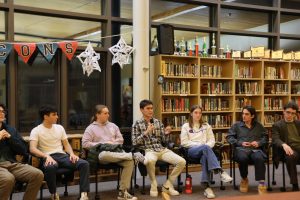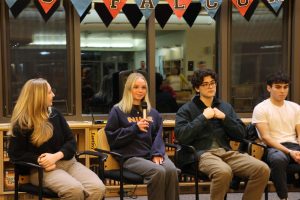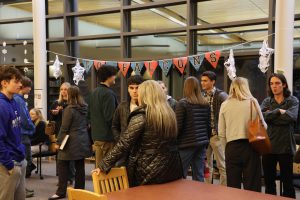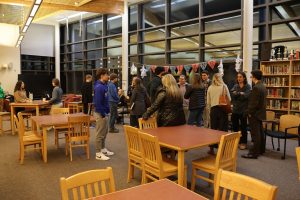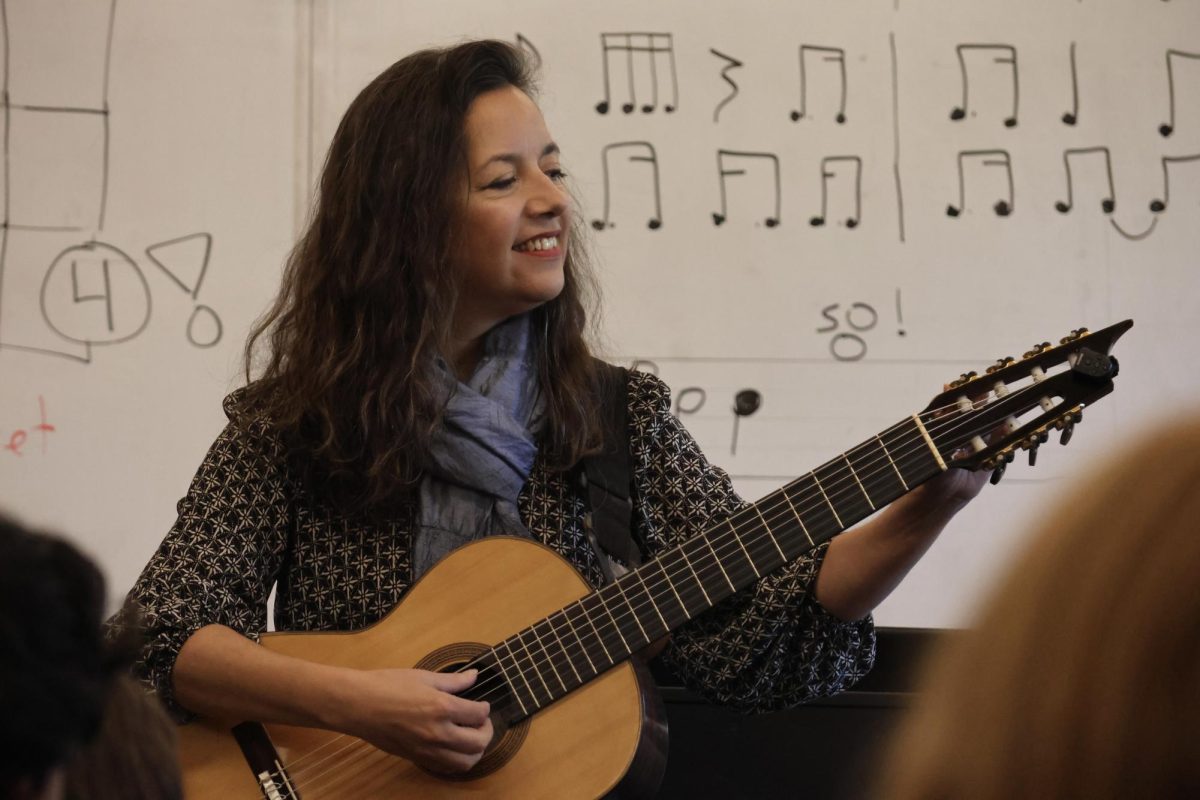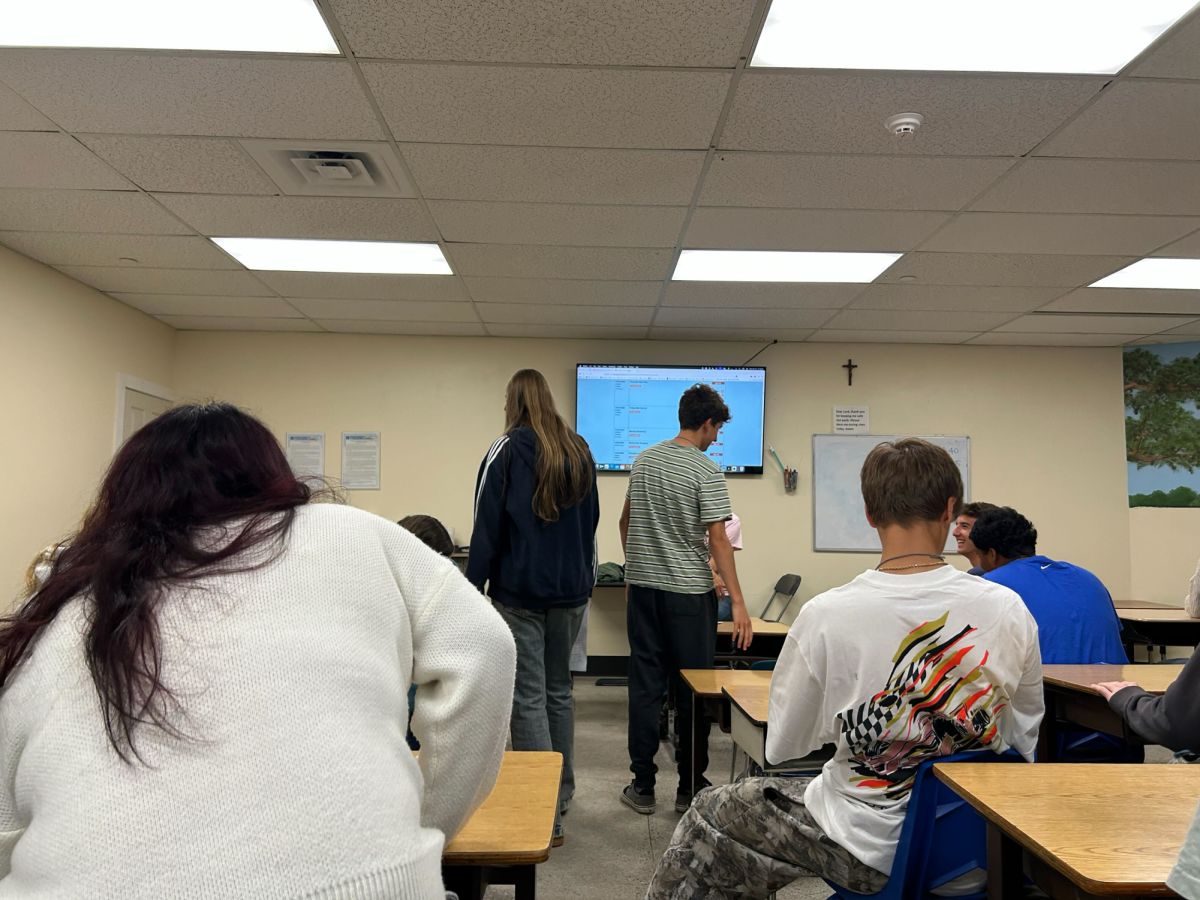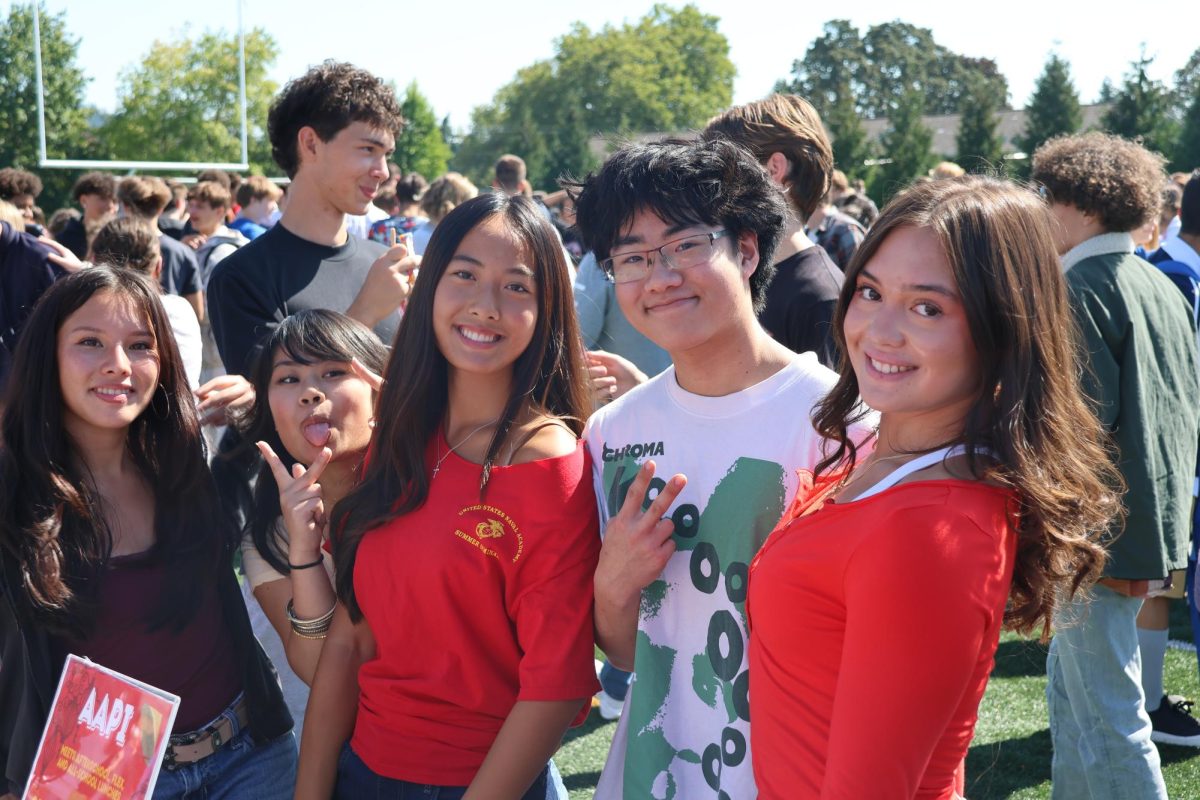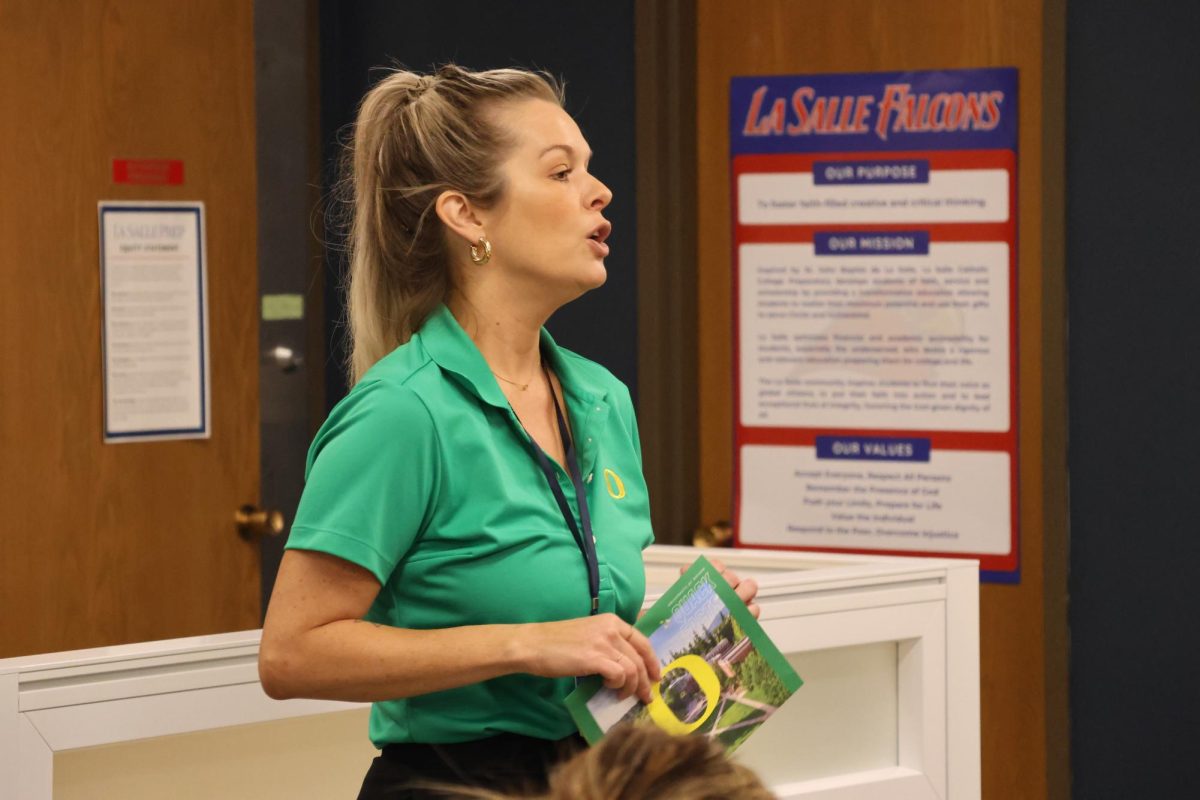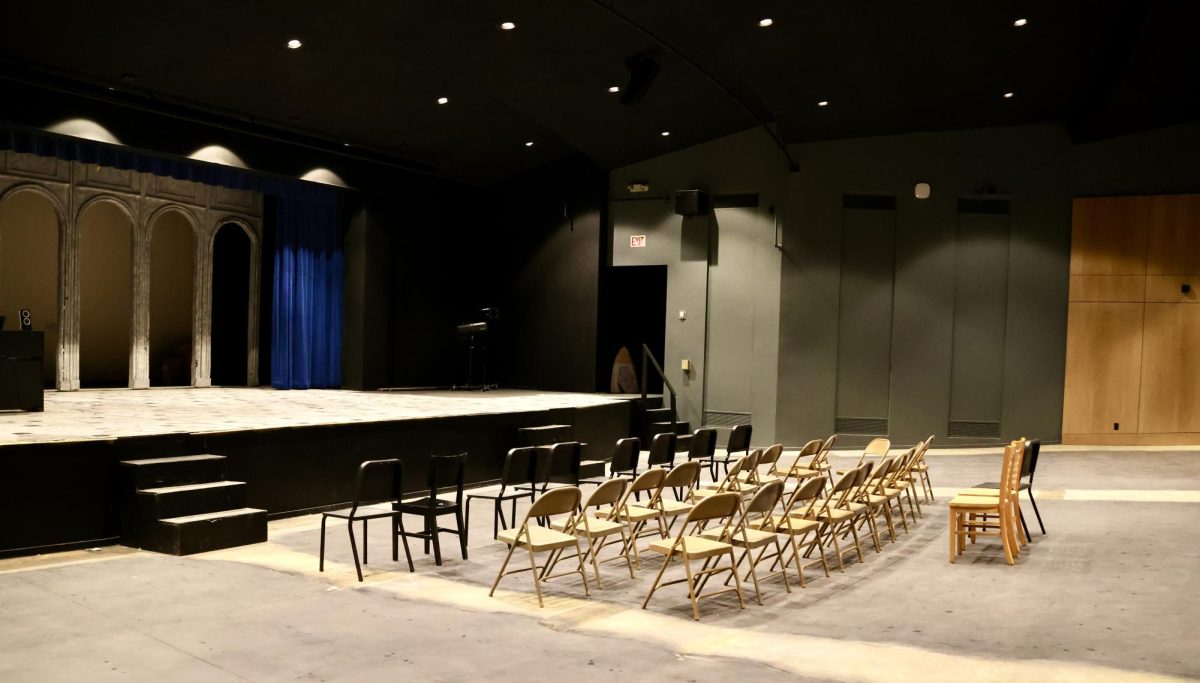An alumni forum on highly-selective colleges and universities was held on Jan. 3 at 7 p.m. in the La Salle Hamersly Library. The event, according to La Salle President Mr. John Huelskamp, endeavored to be a “conduit” to help share the knowledge of alumni with current students. The presentation was the first of its kind, Mr. Huelskamp said, and the aim is for it to become an annual event, taking advantage of the “wisdom and experience” of alumni and the fact that they are often home for the holidays around this time of year.
A total of nine alumni attended, from Northwestern, Macalester, Tufts University, Rice, the Air Force Academy, Washington University, Carnegie Mellon, Georgia Tech, and Boston College.
Mr. Huelskamp, who was in charge of coordinating the event, said that in a desire to avoid the “handpicking” of certain schools or students, alumni were selected based on the college or university they were attending and whether that school met certain criteria. This criteria included an acceptance rate in the teens or below, but Mr. Huelskamp emphasized that they aren’t saying “those are the only or the best” schools. Rather, the motivation to highlight competitive and selective colleges came from students and parent questions Mr. Huelskamp received regarding whether or not La Salle students attend those high-level schools.
“I knew that the answer was yes,” Mr. Huelskamp said. “But in answering that, I realized that we didn’t have structures in place to really kind of promote that or to disseminate some of the wisdom that our alumni had from their experience of getting into these schools.”
The application process and college decision making were a large focus of the event. While the forum started off with two prerequisite “softball” questions, as Mr. Huelskamp put it, the majority of the discussion was led and directed by what students wanted alumni to share, most of which concerned how to apply for colleges, how to adjust to college, and how well La Salle prepared them for the experience. All questions came from students, despite there being parents in the audience, and this was intentional.
Before the presentation began, Mr. Huelskamp reiterated a message to parents that was also shared via the Falcon Forum, a weekly parent newsletter: if students desire to attend the level of colleges that alumni are speaking about, it has to be because they want to, not because their parents do. In reflection of this, only students could ask questions.
“What I love about tonight is that it has nothing to do with the adults,” Mr. Huelskamp said. “The only thing the adults did was help facilitate connecting our alums to our current students, and I think that is a goldmine of wisdom for our current students.”
Sophomore Alexa Storie, who attended the event, said that she was hoping to gain an understanding of the college admissions process. “I feel like it’s not something that people talk about,” she said. “We haven’t gone to college and we haven’t gone through that process, so I was really just curious to see what other people’s experiences were and what I could learn from that.”
Alumni also shared the La Salle course or teacher they felt prepared them the most for college life, ranging from classes such as AP World History with social studies teacher Mr. Peter Snow (which is no longer taught) to English teacher and department chair Mr. Paul Dreisbach’s Honors English II (now taught by English teacher Mr. Greg Larson) and science teacher and department chair Mr. Matthew Owen’s AP Chemistry. Alumni pursuing STEM careers, such as 2023 graduate and valedictorian Onni Baron, expressed their appreciation for the advanced science and math classes; those at humanities-focused colleges highlighted social studies at La Salle. But most alumni, regardless of their current focus, cited AP English or similar courses that challenged them as one of their reasons for success.
According to Franny Bengtson, a 2020 graduate and valedictorian attending Northwestern, “knowing how to be bad at something” is one of the most important skills in college, something she learned in “any class that [she] felt [she] didn’t have a natural ability for,” and Barron, a current freshman at Carnegie Mellon University, echoed that, saying how English, a class that “has never been [his] strong suit,” taught him how to ask for help. Staying after or coming before school during high school to ask for support when writing essays meant that, in college, he was ready and prepared to take advantage of TA office hours.
Junior Roman Saporito, another student who attended the event, said the reason he went to the event, like Storie, was to learn more about alumni’s experiences applying for college.
“Everyone’s experience is going to be different, depending on what college you go to [and] who you are,” Storie said. “But I feel like the admissions process, even though it’s different for a lot of people, it still kind of has a similar structure.”
Bengtson said that it’s difficult to quantify what percentage of the process depends on luck, reflecting on the possibility of not getting into your top schools, even if you put in a ton of work. But, as 2023 graduate Emma Gall pointed out, sometimes rejection can be good. Gall thought that at her early-decision school, which she ended up getting rejected from, she was going to be “so happy … just because it’s an Ivy League.”
A top piece of advice offered by Nate Dominitz, 2023 graduate and valedictorian currently attending Rice, is to visit the schools that you’re interested in applying to, and decide whether or not it’s “a place where [you] could see [yourself] for the next four years,” Dominitz said. According to Begston, when visiting it’s a good idea to look at the students’ faces to see if they look happy.
What’s most important, Gall said, and other alumni echoed, is that you find a school that’s a good fit for you — not just one that has good rankings or low acceptance rates, but a college with a community, courseload, and environment where you could see yourself being happy and successful at.


